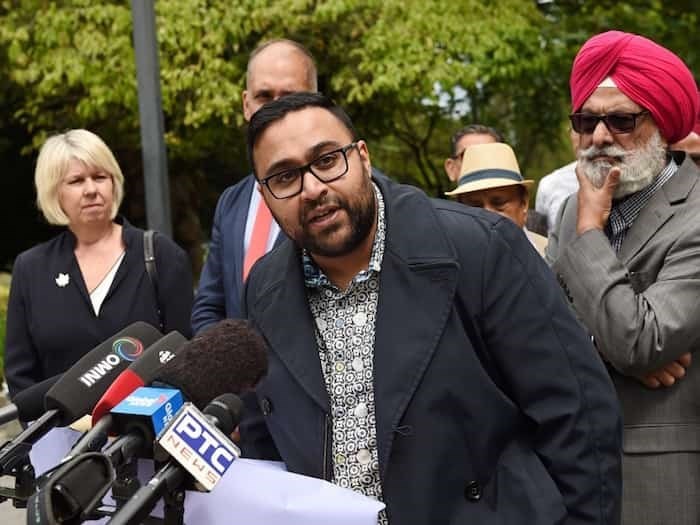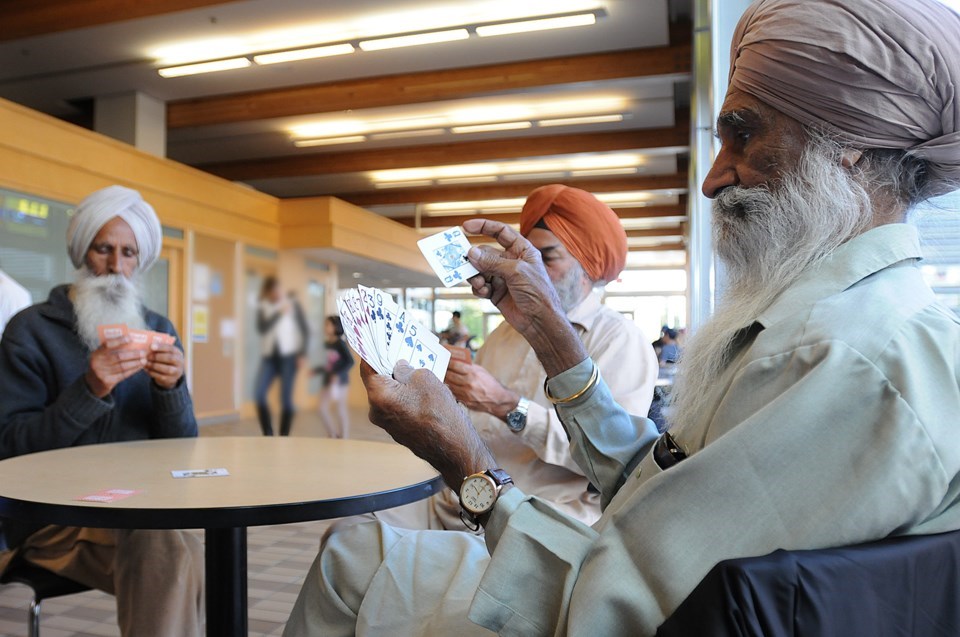The South Asian community in Vancouver wants a formal apology for historical wrongs enacted and perpetuated by previous city councils but says more city-funded work has to first be done for an apology to be meaningful.
That’s the conclusion from Harmanpreet Kaur Bains, a member of a community advisory group tasked with researching Vancouver’s historical policies and practices of discrimination against people of South Asian-Canadian descent.
“If the city is committed to providing a meaningful apology to the South Asian Canadian community, the foundational work cannot be rushed or carried out haphazardly,” said Bains, whose words are quoted in a staff report that goes before council Tuesday (July 5).
“Ultimately, I ask the city and council to provide the necessary flexibility, time, financial support and grace to allow for the cultivation of thoughtful actions which will truly heal the community, and at least try to undo hundreds of years of racism and discrimination.”
The city has already committed $275,000 to the work and staff recommends council allow the advisory group to continue the research, data collection and broader community engagement to inform development of initiatives.
Funds needed to continue the work will be considered in the 2023 budget process.
But the staff report notes council will need to “deprioritize an existing initiative to free up existing funding or approve additional property tax to fund the initiative.”
The report doesn’t provide a dollar figure to continue the work but advisory group members emphasize the need to go beyond research and data collection, with commitments from the city to a broad spectrum of actions required to benefit the community.
'Empty apology'
Retired RCMP officer Baltej Singh Dhillon recommended the city support projects for South Asian arts, heritage and language, which “will bring far greater value than any empty apology or recognition of wrongs done to the South Asian community.”
The advisory group also wants support for seniors, struggling families, newcomers to Canada, LGBTQ2+ and international students with economic, social and housing needs, as well as increasing outreach and ease of access and information about city services.
Investment in “cultural food protection,” increasing availability and supporting existing struggling South Asian-Canadian grocery stores, markets and food programs are also essential to meaningful redress or reconciliation, the report said.

Punjabi Market
Gulzar Nanda, chairperson of the Punjabi Market Collective, wants the city to appoint permanent staff to help with the work, noting six months for the committee to research injustices that span a century is not enough time and requires more investment.
“That way, our community can begin to crystalize our history in Kitsilano, where it has almost entirely been erased, and in the Punjabi Market, where its erasure is ongoing,” Nanda said.
“For this process to mean anything, it is time that the city gets behind a South Asian cultural centre. A beacon for Vancouverites old and new. A place where our intangible and tangible heritage can be preserved and shared with our neighbours and our communities.”
The work being done by the committee comes after council in July 2019 passed a motion to address historic discrimination against the South Asian-Canadian community in Vancouver; the report before council Tuesday is an update on that work.
Right to vote
The research includes providing a summary of laws, regulations and policies of previous councils that discriminated against people of South Asian descent in Vancouver from the late 1890s to the present.
The staff report notes there were “many occurrences” where the City of Vancouver, including previous councils, were directly involved in perpetrating racial injustices on South Asian-Canadian communities.
That included supporting oppression and denying the right to vote in Vancouver, which directly led to the right to vote federally also being revoked. It took 40 years of lobbying and protesting by the South Asian-Canadian community to get the right to vote again.
“The city also supported oppressive and restrictive immigration laws and promoted anti-Asian sentiments,” the report said.
“The long history of discrimination highlights the profound weight, importance and need for the city’s anti-racism and cultural redress work for the South Asian Canadian communities to continue through a community-led approach.”
Komagata Maru
Last year, council formally apologized for injustices and discrimination against 376 passengers travelling on board the Komagata Maru steamship from India in 1914 to Vancouver’s harbour; none of the passengers was allowed ashore, even for preliminary examination, except for 20 returning residents and a very few special cases, according to a Canadian Encyclopedia entry.
Council also declared May 23, 2021 as the first Komagata Maru Remembrance Day to be marked by the City of Vancouver.
Meanwhile, the South Asian-Canadian population in Vancouver continues to grow.
According to the 2016 Census, there was a 43 per cent increase in the South Asian-Canadian population from 1996 to 2016, with more than 37,000 residents in Vancouver and more than 291,000 across the broader Metro Vancouver region.
Within Vancouver, South Asian-Canadian residents make up the largest share of the population in southeastern neighbourhoods, especially in the Sunset area with more than 12,000 residents in 2016.
Racism during pandemic
A survey conducted in April and May of 2021 by the BC Centre for Disease Control provided insight into how the COVID-19 pandemic has affected South Asian residents in Vancouver — and how racism and discrimination is still a present reality.
• 20 per cent of South Asian respondents reported experiencing increased racism during the pandemic; although lower compared to other racialized groups, this was higher compared to the overall population.
• 43 per cent of South Asian respondents reported experiencing discrimination in the workplace.
• South Asian respondents were less likely to be employed in jobs that provided sick leave, with 54 per cent of respondents indicating they did not have leave.
• South Asian respondents were more likely to report being stressed than other respondents (30 per cent) and having poor mental health (41 per cent).
• South Asian residents were among the groups in Vancouver most likely to report being concerned for their own health (37 per cent) and for a family member’s health (72 per cent).
@Howellings




